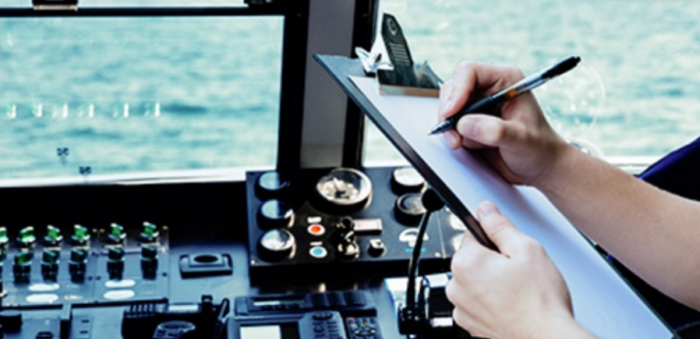OCIMF issued an update to its COVID-19 bulletin, which gives guidance on Ship Inspection Report Exchange (SIRE) / Barge Inspection Exchange (BIRE)/ Offshore Vessel Inspection Database (OVID) inspections. The information was shared by BIMCO.
This update focuses on the inspectors and offers guidance on what inspectors should do from the start to completion of their inspection, including exposure to COVID-19 reporting requirements.
Firstly, OCIMF notes that the Submitting Company and Inspector should discuss potential safety, travel and accommodation arrangements, while an inspector is contracted to conduct an inspection.
Where an Inspector feels that they do not have enough safety, travel or inspection guidance, through standing instructions or the inspection booking process, they should engage with the Submitting Company and resolve their concerns before travelling.
Travel, accommodation, and rest
Inspectors should follow the instructions and guidance provided by the Submitting Company and their sub-contracted inspection company, relating to travel and accommodation booking for the period while they are contracted to inspect on behalf of the Submitting Company.
Inspector must comply with all national, regional, and local authority travel restrictions.
When organising travel and accommodation, the following points should be considered:
- Travel restrictions can change rapidly during the current crisis, and an Inspector may be prevented from travelling to undertake an inspection or, prevented from travelling home upon completion of the inspection. Where the latter is a possibility, it is recommended that the Inspector engages with the Submitting Company to develop a contingency plan before travelling to the inspection.
- Distant travel should not be booked for overnight trips if suitable safe accommodation cannot be booked and confirmed in advance to ensure adequate rest for safe journey management.
- Driving long distances to and from inspections is undesirable as fuel/food/rest stops will inevitably increase exposure to COVID-19 for inspectors and the potential for passing this on to ship’s staff and the inspectors’ families.
- An Inspector is responsible for ensuring that they are adequately rested and fit to drive when they drive in connection with a Programme Inspection.
- Sleeping on board a vessel which is in the process of being inspected or, when an inspection has been completed, is discouraged unless it is impossible to leave the vessel.
- An Inspector should leave a vessel as soon as an inspection has been completed. Communication with the vessel and vessel operator.
- An Inspector should not communicate with the vessel or vessel operator, apart from in the following circumstances:
- To provide personal details to permit access to the terminal or facility where the inspection is scheduled to take place.
- To respond to a health questionnaire or declaration related to COVID-19 exposure.
- To update the vessel on logistical details of arrival onboard. All necessary communications with the vessel or vessel operator after completion of an inspection, including reports of potential exposure to COVID-19, must be directed through the Submitting Company.
See also: A risk management framework on COVID-19 for ships
Use of Personal Protective Equipment (PPE) and social distancing
Inspectors should:
- Comply with all applicable law.
- Take proper and adequate measures to protect themselves from COVID-19 infection while travelling to and from an inspection.
- Comply with the PPE requirements of the Submitting Company while inspecting on their behalf.
- Comply with the PPE requirements of the vessel while onboard, providing it is safe to do so.
- Terminate an inspection if it is not safe to continue while complying with the PPE requirements of the vessel or its operator.
- Comply with the PPE requirements of a terminal or facility while transiting to or from the vessel, provided it is safe to do so.
- Terminate an inspection if potential exposure to COVID-19 or any unknown illness onboard exists.
- Comply with social distancing measures as far as possible.
- Avoid personal contact as far as possible.
- Maintain a high standard of personal hygiene at all stages of an inspection.
- Discard any disposable PPE after leaving a vessel and before continuing travel.
- Ensure that bags, personal effects, and normal PPE is properly washed and/or sanitized before each inspection.
- Not wear the same clothing for consecutive inspections or carry previously worn clothing or PPE aboard another vessel to be inspected unless it has been washed and/or sanitized.
It is recommended that inspectors carry:
- At least one spare set of COVID-19 PPE which includes a disposable suit, face mask and gloves, as a precaution to avoid the possibility that they will not be permitted to transit through a terminal or facility.
- An alcohol-based hand sanitizer.
Reporting of exposure to COVID-19
Inspectors should:
- Follow all national, regional, and local reporting requirements for COVID-19 exposure or infection.
- Follow the local and national directives regarding self-isolation, where applicable.
- Notify the Submitting Company of any COVID-19 exposure or infection in accordance with instructions issued by the Submitting Company for a period from 14 days before an inspection and, COVID-19 infection only, for 14 days after an inspection.
- Notify OCIMF if they are positively diagnosed with COVID-19 within 14 days of completing any OCIMF Programme Inspection.
- Cease all inspection activity upon a positive diagnosis of COVID-19 until such time that they are permitted to return to work by national, regional or local government regulations in force in their home location and the location of any intended future inspections.
- Cease all inspection activity after contact with a person with suspected COVID-19 until either, 14 days has elapsed since the contact or, a COVID-19 test confirms that infection has not taken place.
- Notify OCIMF if they are exposed to an individual with suspected COVID-19 symptoms during a programme inspection.
- Make any notification concerning exposure to, or diagnosis of, a COVID-19 infection to the national, regional, and local authorities where they live and to jurisdictions where they have transited, traveled, or carried out inspections.





























































